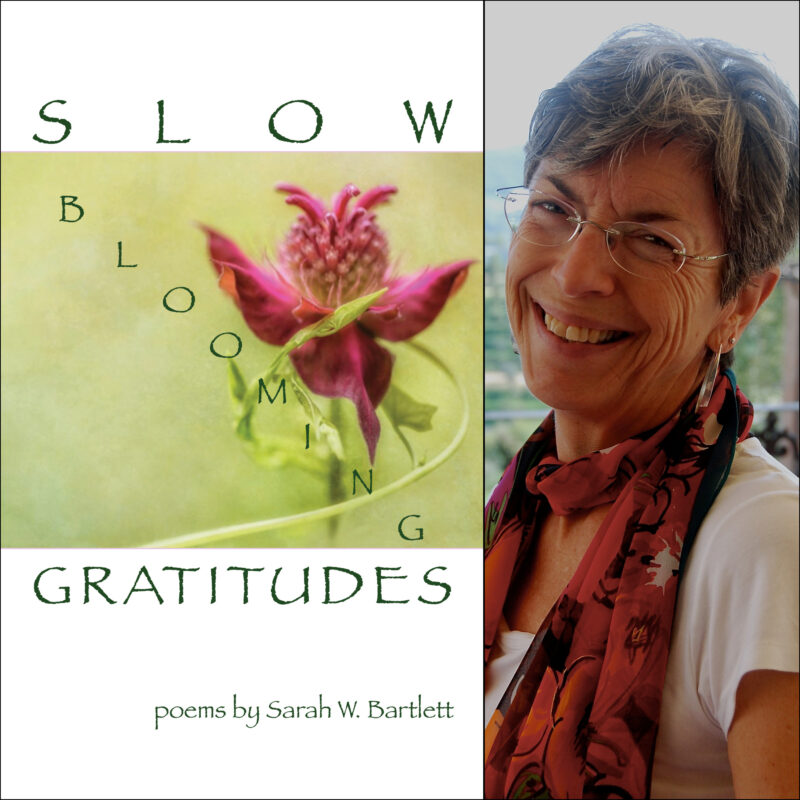Reviewed by Emily Shearer
We grow through uncertainty
and the urge to keep moving
to keep ourselves whole
perhaps to discover we might
be driven by reasons neither noble
nor true. Yet the unknown
opens prospects;
and while clarity may ensue,
it’s the wandering that teaches,
the open heart that receives.
from “Discovery”
In “Slow Blooming Gratitudes”, (Finishing Line Press, © 2017) Sarah Bartlett encapsulates small, life-making, present and prescient moments with an exactitude of language, a capacity to hold both sorrow and joy in the same hand, and a warm stroke of humanity. To every poem, she applies wonder, newness, simplicity and song. This short book is a paean to the cycles of time and nature, to the rush of emotion that accompanies a mother as she experiences her own son begin his journey of parenthood (“My Little Guy Has One of His Own”) and a soul enduring heartbreaking loss – that of sister, of father, of bygone youth. She writes in “Living with Dying”,
I sit with the hole in my heart, the whole of left behind,
to hold—mother, father, best friend, son—
each loss reborn spirals love beyond
what I can hold; in heart time, all loss is one.
In this stanza alone, we see the poet’s use of hole, whole, and hold. It is by no accident that these word-sounds recur throughout the book: “questions I never knew I had,/and need not hold/nor answer” (from “Discovery”) “She is not the one left/ holding the family center/ at the threshold” (from “Found”). Bartlett’s short glimpses into these resonant cross-sections of family life, personal story, integral piece of a whole demonstrate her great understanding that “the whole of . . . life/ danc[es] like a river onward” (from “Equinox”).
From the author’s biography, we learn that Bartlett’s father, a chemist, was a significant influence on her life and writing. The whisper of the order of the natural world is evident in the progression through seasons from life to death, its quiet spiritual nature is seen in poems like “For Keeps” and “Zen Dog” and the respect for seasonal changes in “New England Memory” are testament to poetry’s bond with earthly rites and turns and bigger pictures.
The poet closes the collection with “Equinox”. Once the reader arrives gratifyingly at the last line of the last poem, she is left feeling that its close is a fine ribbon tied atop this package presented to the reader as a gift, given freely from the poet’s open hand to “the open heart that receives.”

